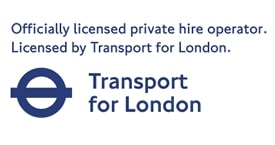Londoners encouraged to 'make a small switch' to curb engine emissions
- New advice given to schools to help reduce 'school-run' pollution
- First phase of campaign saw reduction in engine idling
A campaign to encourage drivers to switch off their engines when stationary to reduce unnecessary emissions has been launched in London.
It comes as new advice is being offered to schools to help cut 'school-run' pollution. This is the second phase of TfL's 'no-idling' campaign which is targeted at vehicles when parked, waiting or loading at the roadside.
The campaign highlights the impact of pollution on health and how small changes can make a big difference.
Reducing pollution levels can both prevent and alleviate illnesses such as asthma and heart and lung conditions. switching off a vehicle's engine when it is stationary for more than one minute will not only reduce the amount of harmful pollutants such as particulate matter (PM10) and nitrogen oxides (NOx) emitted, but will also reduce fuel consumption.
Surveys taken before and after the first phase of the campaign (delivered in January 2012) on central London roads with high levels of pollution estimated an average drop of five per cent in unnecessary engine idling across all vehicles. Research suggests engine idling is a significant contributor to pollution in London.
TfL estimates that 59 per cent of drivers parking or loading at the side of the road in central London leave their engines idling unnecessarily.
Modelling has shown that if all drivers in central London switched off their engines, rather than leaving them idling unnecessarily, for one minute each day, this could reduce PM10 emissions by around 290g per day or at least 90kg per year.
This is the equivalent of a medium sized diesel car making 62 trips around the world, the equivalent of travelling 2.5 million kilometres.
In addition, TfL has been working with the Greater London Authority and the London Sustainability Exchange (LSx) to pilot a scheme helping primary schools to teach pupils more about the causes and impact of pollution.
It has also developed activities and resources to encourage practical measures to improve local air quality around schools by working with staff, pupils and parents.
The 'Cleaner Air 4 Schools' project has been working with three schools around Marylebone Road, an area with higher pollution levels, to develop a 'toolkit' which is now available to all schools in the Capital.
The Cleaner Air 4 Schools pack is available for download.
The no-idling campaign is part of a wider package of measures the Mayor is introducing to improve air quality by cleaning up emissions from buses, taxis, lorries and encouraging cleaner cars. The Mayor of London Boris Johnson, said: 'I am introducing a range of robust measures to tackle pollution.
'Drivers can play their part too by taking time to switch off when stationary.
'This can save money off costly fuel bills as well as make our city a cleaner place to live and work.' Leading health and transport organisations such as Asthma UK, the Confederation of Passenger Transport (CPT), and the Freight Transport Association (FTA) have voiced their support for this campaign. Garrett Emmerson, TfL's Chief Operating Officer for Surface Transport said: 'We have been working hard to improve air quality in London and are pleased to launch the second phase of our no engine idling campaign as part of the Clean Air Fund measures.
'We are working with our bus operators and other transport organisations, such as the Confederation of Passenger Transport and the Freight Transport Association, to reduce unnecessary engine idling in London.
'We also hope that the success of the Clean Air 4 School project we piloted at three schools will be replicated across London following the launch of a new information pack.' The results from the LSx pilot show that 70 per cent of pupils, parents, teachers and governors who took part in the pilot demonstrated a clearer understanding of air quality issues.
The best success was measured in schools where parent and school governor engagement was high.
The project also championed peer-to-peer social marketing, which was adopted by up to 56 per cent of parents who spread the word about air quality to their friends, family and colleagues.
Furthermore it was successful in changing behaviour around travel choices, with 35 per cent reporting reduced car travel, 11 per cent decrease in car engine idling, and 58 per cent increase in cycling, in those that travelled by these means regularly.
The results have also shown that the schools which took part in the pilot saw a reduction in travel by car, an increase in cycling and a small increase in the use of public transport for journeys to and from school. Samantha Heath, CEO, London Sustainability Exchange, said: 'Air pollution causes the equivalent of around 4,300 premature deaths in London.
'The pilot project has demonstrated the importance of educating people on air quality issues and the impact that it can have.
'We are proud to be part of this project and hope London schools find the Cleaner Air 4 Schools toolkit useful, and that those using it can get a better understanding of the small changes they can do to make a difference.' TfL's no idling campaign is running from now with radio and poster adverts. The campaign is one of a number of targeted measures being funded by the DfT's Clean Air Fund at the request of the Mayor.
TFL




